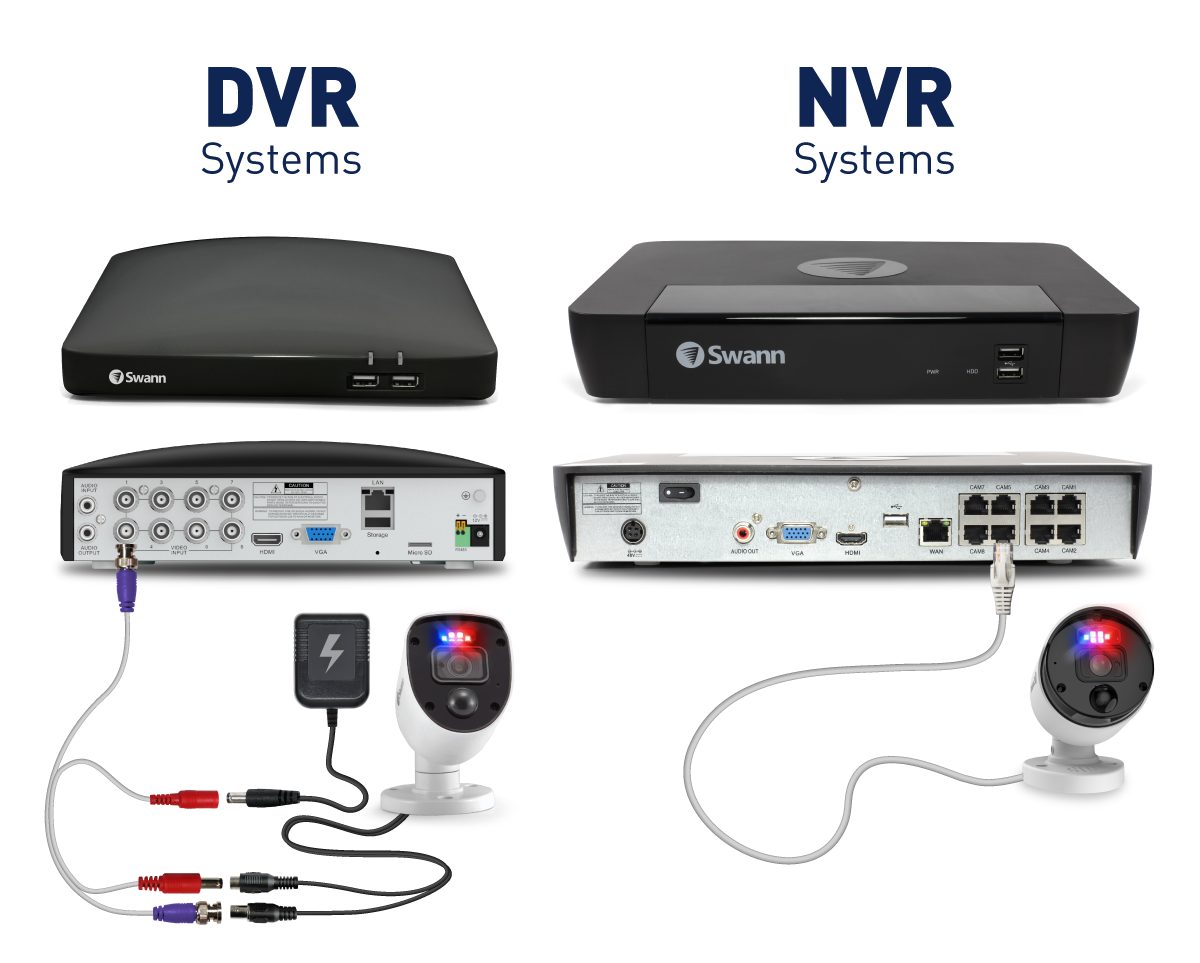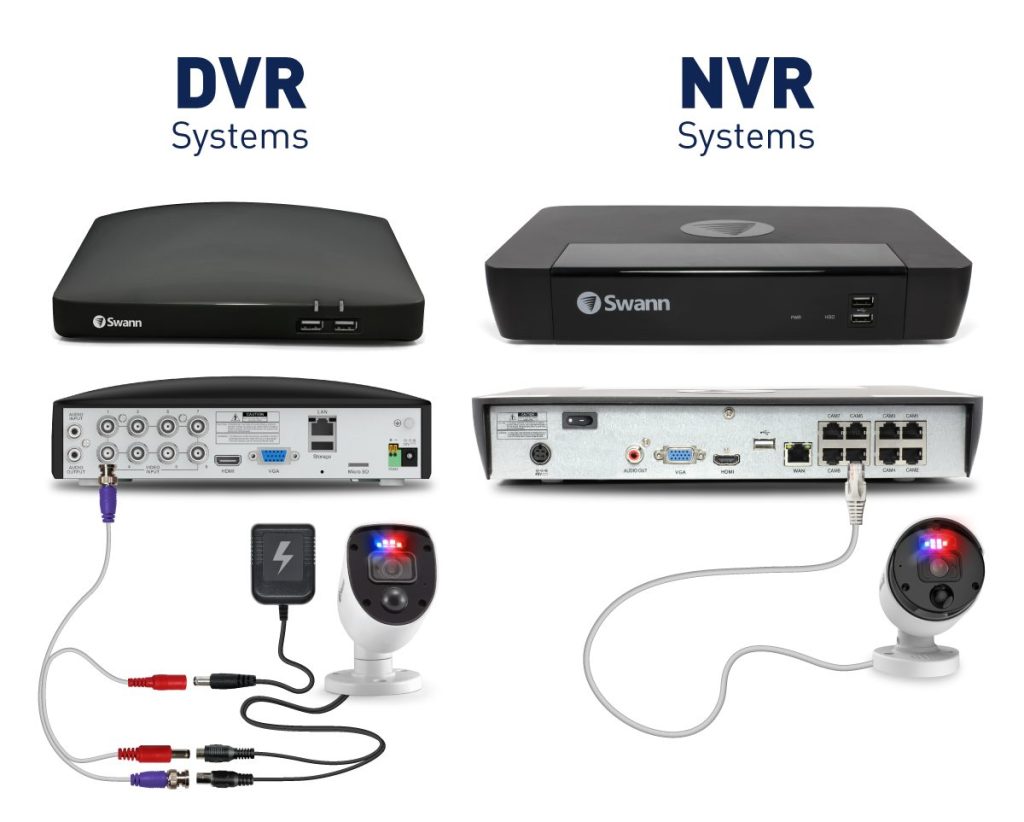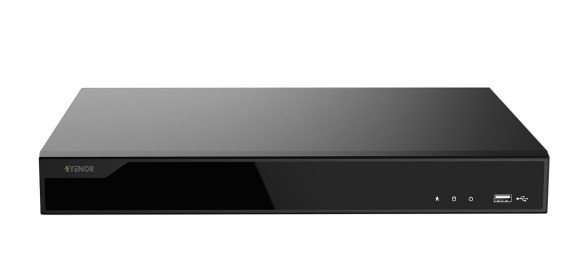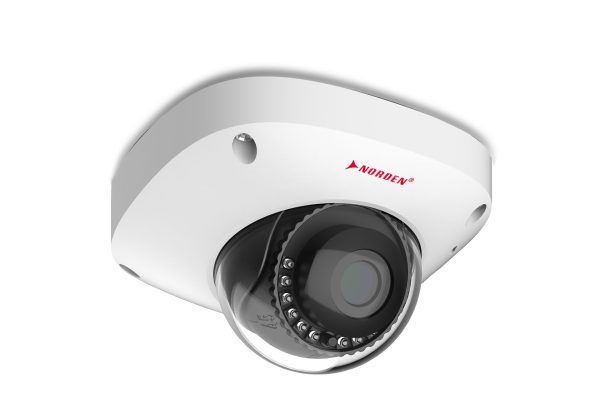Introduction
In this NVR DVR comparison guide, we’ll break everything down in plain English so you can pick the right system for your home or office without all the tech confusion.
Choosing a security system can feel overwhelming. You’ve probably come across NVR and DVR, but what do they mean? More importantly, which one should you choose?
Table of Contents
- Introduction
- Understanding NVR and DVR Systems
- Key Differences: NVR vs DVR
- Network Video Recorder Benefits
- Digital Video Recorder Features
- IP Camera Compatibility and Setup
- Storage and Recording Options
- Wired vs Wireless Surveillance
- Remote Access and Smart Integration
- Motion Detection and Monitoring Tools
- Security System Setup Costs
- Conclusion
- FAQs
Understanding NVR and DVR Systems
Both systems record video, but they do it differently:
- NVR (Network Video Recorder): Works with IP cameras via a network connection.
- DVR (Digital Video Recorder): Uses analog cameras and coaxial cables.
One uses modern digital tech, the other sticks to the basics. The choice depends on your needs.
Key Differences: NVR vs DVR
Let’s compare these systems side by side:
Feature | NVR | DVR |
Cameras | IP | Analog |
Resolution | Up to 4K | Up to 1080p |
Setup Flexibility | High | Limited |
Connectivity | Ethernet/Wi-Fi | Coaxial cable |
Smart Features | Advanced | Basic |
Remote Access | Easy | Moderate |
NVRs offer more features but at a higher cost. DVRs are budget-friendly and still reliable.
Network Video Recorder Benefits
NVR systems bring high performance and convenience:
- Supports remote access security cameras
- Delivers crisp, high-res video
- Integrates with smart home surveillance systems
- Offers cloud backup and flexible storage
NVRs are ideal for those who want more control and better visuals. You can read on everything you need to know on NVR
Digital Video Recorder Features
DVRs shine when it comes to simplicity:
- Great for basic home security recording systems
- Requires fewer network configurations
- Lower security system setup costs
If you want a no-fuss system that works out of the box, DVR might be for you.
IP Camera Compatibility and Setup
IP cameras pair seamlessly with NVR systems. They allow:
- Wireless installation
- Advanced features like two-way audio
- Smart motion detection recording systems
DVRs stick to analog cameras, which are more limited in capability and resolution.
Storage and Recording Options
Let’s talk storage:
- NVRs offer cloud storage, high-capacity local drives, and customizable settings.
- DVRs stick with built-in hard drives.
NVRs also work better with advanced video analytics software, saving space by recording only what matters.
Wired vs Wireless Surveillance
- Wired (DVR): Reliable, but involves drilling and heavy installation.
- Wireless (NVR): Flexible and easy, especially for renters or large properties.
It’s like choosing between a wired landline and a wireless smartphone—both work, but one gives you more freedom.
Remote Access and Smart Integration
Want to check your cameras from your phone?
- NVRs support easy mobile access, voice control, and integration with devices like Alexa.
- DVRs often need extra setup and may not work with all apps.
Smart features help you stay connected, wherever you are.
Motion Detection and Monitoring Tools
Motion alerts are a must-have.
- NVRs detect people, cars, or even faces.
- DVRs offer general motion alerts, with fewer filtering options.
Smart alerts mean fewer false alarms—and more peace of mind.
Security System Setup Costs
DVR systems typically cost less upfront.
NVR systems cost more but offer:
- Better image quality
- Easier scaling
- Smarter features
Always weigh short-term costs against long-term value.
For gear options and price comparisons, check out Promallshop to shop IP phones—a great place to start building your system.
Conclusion
In this NVR DVR comparison guide, we’ve seen that:
- NVRs are powerful, flexible, and smart-feature ready.
- DVRs are simple, budget-friendly, and solid for basic use.
Choose what fits your space, tech comfort level, and budget. Either way, you’ll boost your home or office security—and that’s a smart move.
Explore more helpful guides at the Promallshop Blog.
FAQs
NVR systems typically offer higher video resolution, up to 4K.
Yes. NVR systems make it easier, often through mobile apps or browsers.
Generally, yes. DVR systems cost less but come with fewer features.
Not for local recording, but you’ll need it for remote viewing and updates.
NVRs integrate better with smart home devices and AI-powered tools.






